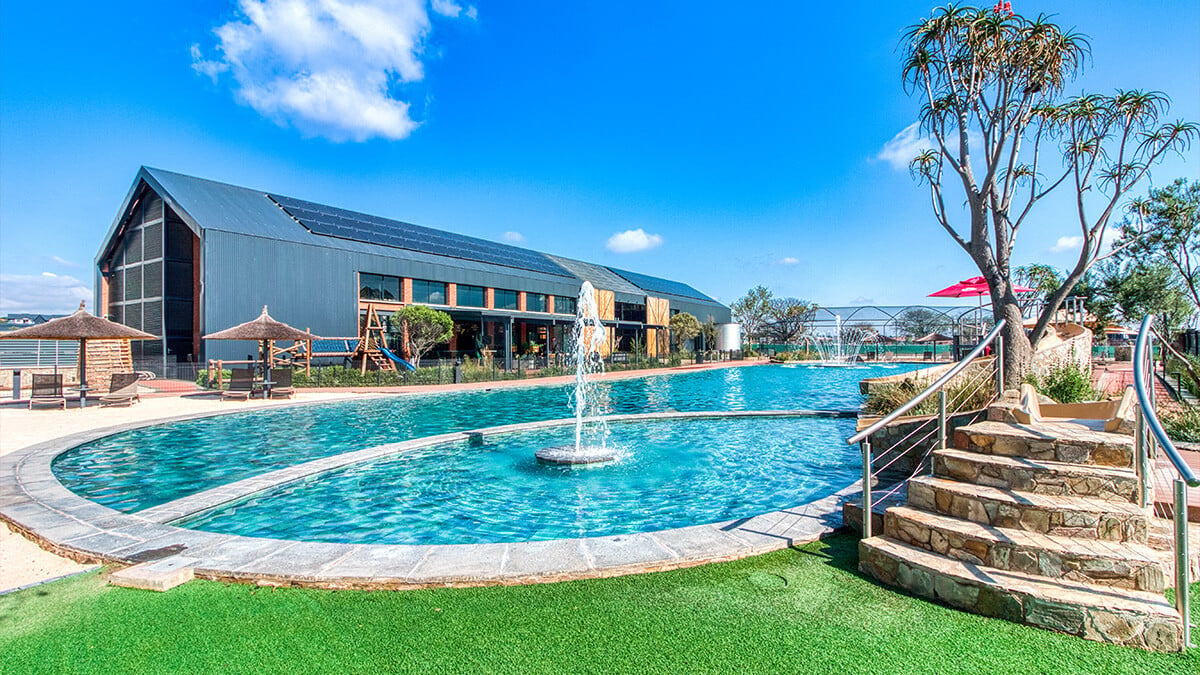Discover the realities of sectional title developments in real estate and how they can impact your property ownership.
Understanding Sectional Titles in Real Estate
Sectional title refers to a form of property ownership where multiple units or sections are owned by different individuals within a larger building or development, coupled with joint ownership in the common property.
Each unit has its own title deed and owners have shared ownership of common areas such as parks, walkways, and amenities, as well as the Lifestyle Centre.
This form of property ownership is commonly found in apartment buildings, townhouses, and gated communities. It allows individuals to own a specific unit while sharing the responsibility and costs of maintaining the common property areas.
Understanding the concept of sectional titles is essential when considering purchasing a property in such a development, as it comes with specific rights and responsibilities.
The Legal Framework of Sectional Titles
Sectional titles are governed by specific legislation that varies from country to country. In many jurisdictions, this includes acts or laws that outline the establishment, management, and governance of sectional title schemes.
In South Africa, this is governed by the Sectional Titles (Act No. 95 of 1986) and the Sectional Titles Schemes Management Act (Act No. 8 of 2011), which regulates the division of buildings into sections and common property, as well as the management of these properties. The Body Corporate is the collective name given to all the owners of units in a scheme. Units usually refers to the townhouses or flats in a development. The Body Corporate comes into existence as soon as the developer of the scheme transfers a unit to a new owner. This means that all registered owners of units in a scheme are members of the Body Corporate.
The Body Corporate controls and runs the scheme. Day-to-day administration of the scheme is vested in trustees who are appointed by the Body Corporate.
Major decisions regarding the scheme are made by the Body Corporate, usually at the annual general meeting (AGM), or at a special general meeting (SGM). Each member of a Body Corporate is entitled to vote at these meetings, provided that the member is not in arrears with levy payments or in serious breach of the rules.
The Body Corporate exists to manage and administer the land and buildings in the scheme. This means, that the Body Corporate is required to enforce the legislation and rules in the Sectional Titles Schemes Management Act, the Management Rules and the Conduct Rules of the scheme. These rules can be amended by the Body Corporate and must be adhered to by all residents.
Owners must pay levies to the Body Corporate to cover maintenance, insurance, and other communal expenses. Non-payment can result in legal action or even the attachment of the unit.
Understanding these legal aspects ensures compliance and a smooth ownership experience in a sectional title property.
Benefits and Challenges of Sectional Title Ownership
Owning a sectional title property offers several benefits. Firstly, it provides access to shared amenities and facilities that may be more affordable compared to owning a standalone property. These can include swimming pools, gyms, gardens, and security features.
Additionally, sectional title ownership often comes with the advantage of shared maintenance responsibilities. While individual owners are responsible for the internal maintenance of their units, the costs and efforts of external maintenance of units and common property areas are shared among all owners.
However, sectional title ownership also presents challenges. Disputes can arise among owners regarding issues such as the management of common property areas, payment of levies, or noise disturbances. It is important to be aware of these potential challenges and to actively participate in the decision-making processes within the sectional title scheme.
Future Trends in Sectional Title Real Estate Market
The sectional title real estate market is subject to various trends that may impact its future. One notable trend is the increasing popularity of mixed-use developments, where residential, commercial, and retail spaces coexist within the same building or complex. This offers convenience and accessibility to residents and is expected to continue growing in the future.
Another trend is the incorporation of sustainable and eco-friendly features in sectional title developments. This includes the integration of renewable energy sources, water-saving technologies, and green building practices. As environmental consciousness grows, these features are likely to become more prevalent in the market.
Furthermore, with the rise of remote work and flexible lifestyles, there may be an increased demand for sectional title properties that offer amenities such as co-working spaces or communal areas designed for remote work. Developers and investors are recognising this shift and adapting their offerings to cater to the evolving needs of buyers.
As the real estate market evolves, it is important to stay informed about these trends and consider them when making decisions regarding sectional title property ownership.



%20(1920%20x%201080%20px)-May-28-2024-09-21-36-9494-AM.jpg)